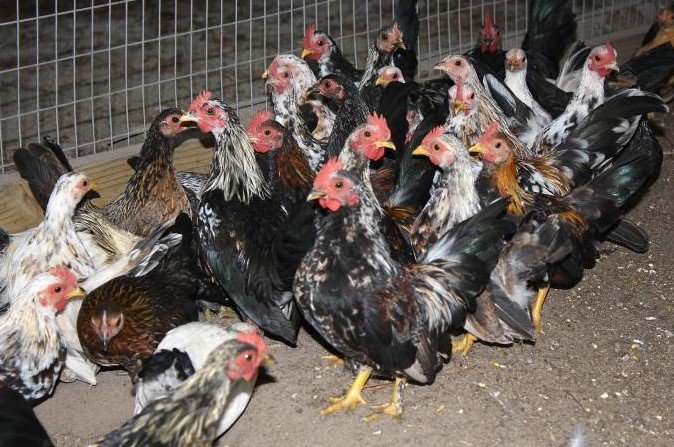Georgia officials quickly contained a bird flu case in a Henry County backyard flock, preventing wider spread and protecting the state’s massive poultry industry. The outbreak, confirmed in early September 2025, marks the second detection in Georgia this year and highlights ongoing risks from migratory wild birds.
What Happened in Henry County
State agriculture teams responded fast after reports of sick birds in a non-commercial flock of about 45 mixed species. Tests confirmed highly pathogenic avian influenza, a virus that can kill entire groups of poultry in days.
The affected site sits in a rural area south of Atlanta, with no large commercial farms nearby. This limited the chance of the virus jumping to bigger operations. Crews removed infected birds, cleaned the area, and checked nearby flocks within 24 hours.
Officials traced the likely source to contact with wild birds, a common way the disease spreads. They monitored people who handled the birds, but no human cases emerged. The quick action stopped the virus from moving further.
Georgia’s Poultry Industry at Stake
Georgia leads the nation in chicken production, with an industry worth over $6 billion each year. It supports jobs for 88,000 people and adds $28 billion to the economy. A major outbreak could hurt farmers, workers, and food supplies.

This year started with a scare in January when bird flu hit a commercial flock in Elbert County. That led to a statewide halt on poultry shows and sales to curb risks. The Henry County case is the first since then, but better prep helped contain it.
Nationwide, the outbreak since 2022 has killed over 174 million birds. States like Iowa and Minnesota faced the worst losses. Georgia has lost only about 205,000 birds so far, thanks to strong rules on farm safety.
Here are key facts on Georgia’s poultry strength:
- Top U.S. producer of broiler chickens
- Exports to over 100 countries
- Strict checks on farms to block diseases
How Officials Stopped the Spread
Agriculture Commissioner Tyler Harper praised the rapid response as key to success. Teams used new tools and staff added this year for faster action. They set up quarantines and gave tips to local bird owners on spotting signs like sudden deaths.
The state works with federal groups like the USDA to track the virus. In Henry County, they warned neighbors to keep wild birds away from coops and report problems right away. A hotline at 770-766-6850 lets people call in concerns.
This fits into broader efforts to build emergency plans. Harper noted fall migrations bring more wild birds, raising risks. Officials now test more often and train farmers on simple steps to protect flocks.
| Key Response Steps | Details |
|---|---|
| Initial Report | Flock owner notices sick birds and calls authorities |
| Testing | Samples confirm HPAI within hours |
| Containment | Remove birds, clean site, quarantine area |
| Monitoring | Check nearby flocks and human contacts |
| Prevention | Issue guides on biosecurity to owners |
Risks to Humans and Food Supply
Bird flu rarely jumps to people, and the risk stays low in this case. No one linked to the Henry County flock got sick. Cooking poultry and eggs kills the virus, so store-bought items remain safe.
Still, experts watch for any changes that could make it spread easier among humans. Recent U.S. cases in other states involved farm workers exposed to sick cows or birds, but most were mild.
Georgia’s public health department joined the effort to track contacts. They remind everyone to avoid raw poultry and report wild bird die-offs. This helps spot issues early.
Broader Impact of Bird Flu Outbreaks
Across the U.S., bird flu has hit over 1,000 cattle herds and infected more than 70 people in 14 states by mid-2025. One death was confirmed, tied to exposure on a dairy farm. The virus also killed millions of wild birds and spread to mammals like seals and foxes.
In Georgia, wildlife officials track cases in wild species. They urge hunters and outdoor fans to report dead birds. This data helps predict risks to farms.
Recent events show the virus adapting. For example, outbreaks in New York geese this year raised alarms about urban spread. Georgia aims to stay ahead with better monitoring.
Experts say climate shifts and more intense farming add to the challenges. Warmer weather lets migratory birds carry the virus farther. Farms use tighter security, like covered coops and boot washes, to fight back.
Staying Safe and Informed
Poultry owners should watch for symptoms like swelling, low energy, or egg drops. Simple habits, such as fencing off wild bird areas, make a big difference.
The state offers free resources online for biosecurity plans. Working together keeps outbreaks small and protects livelihoods.
What do you think about Georgia’s handling of bird flu? Share your thoughts in the comments and pass this article to friends who own birds or work in farming.
